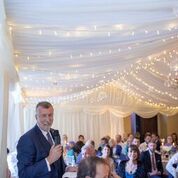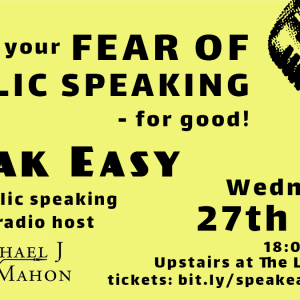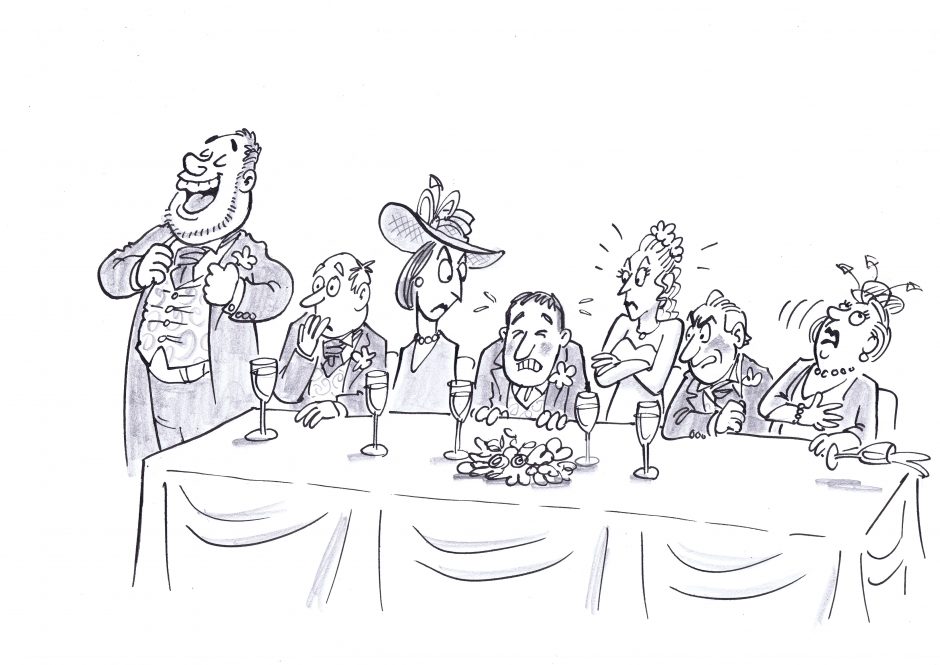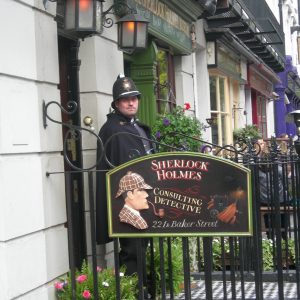 “Ladies and gentlemen, welcome! To this beautiful venue on the happy occasion of the marriage of Eleanor and …. John.”
“Ladies and gentlemen, welcome! To this beautiful venue on the happy occasion of the marriage of Eleanor and …. John.”
What the hell happened there? For a second I’d forgotten the name of my new son-in-law. I, whose memory for names, for faces, for practically everything, was legendary among my friends and anyone else ready to hear a demonstration of said skill. No matter: on with the speech.
“I have the honour of being the Father of the Bride and for anybody who doesn’t know me, my name is …. James.” There it was again. The legendary memory starting to let me down again?
No matter. I knew enough about public speaking to have memorised the start and finish of my speech; it was just that tricky bit in the middle where I might need to refer to my script. So I felt, as unobtrusively as possible, into the right-hand breast pocket of my hired morning suit. The pocket where I always kept scripts, though I usually scorned their use. But for my daughter’s wedding, I was enough of a control freak that I needed it to be word-perfect.
My hand went into the pocket and came out with … nothing, if you don’t count a receipt from Moss Bros. Unobtrusively again, I tried the other breast pocket. Nothing. However, I knew enough of my speech to continue.
“My first task today is to welcome you all! Especially …” My wife and I had already spent several less-than-amicable evenings negotiating which members of our extended family merited a special mention … or shout-out, to use the ghastly modern jargon. The criteria had been (advanced) age and distance of travel. Simple enough, you’d think. But whose names had we come up with? I couldn’t remember.
“Some of you have come a very long distance to be with us today …” I ploughed on. At that point, I realised that some of the audience were looking at me rather quizzically. The reason soon became clear: my microphone had ceased functioning. All those hours spent practising with the bloody thing and now I’m let down by technology?
Suddenly I noticed some papers on the floor by my feet. Was this my script? I must have dropped it. And had I remembered to staple the pages together, or would they be out of order now?
Bending down to retrieve the offending sheets, I suddenly remembered my wife’s warning when we went to Moss Bros to be fitted for my morning suit: “Don’t forget that you don’t take a 36-inch waist any more, darling. Practicality is more important than vanity.”
Vanity, vanity, all is vanity. I had of course ignored her advice, not for the first time, and now I paid the price. I’d almost scooped up the pages of my script when I heard the tell-tale noise of my trouser seam giving up the ghost.
The laughter that this produced in the audience was totally uncalled-for, I felt. As was the increased hum of conversation around the room. Most distasteful.
Suddenly the laughter and the buzz of conversation were silenced by another sound. A bell. OK, I must have remember to set a timer for ten minutes, which I had been told was absolute the longest that a wedding speech should last. Surely we weren’t there yet? I’d hardly begun.
The bell, however, didn’t care about my concerns. It continued unabated, louder and louder, until its strident tones were replaced by my wife’s voice saying “Wake up, you idiot. It’s eight o’clock and breakfast will be ready soon.”
I sat up in bed; the sweat was dripping from my brow. My eye lighted on a wall calendar, from which I could see two pieces of reassuring information. Eleanor’s wedding isn’t for another two weeks. And tomorrow I have another session with my wedding-speech coach. All is well.
As that wise man said (who was it? I must check): “My life is full of great disasters, most of which never happened.”





